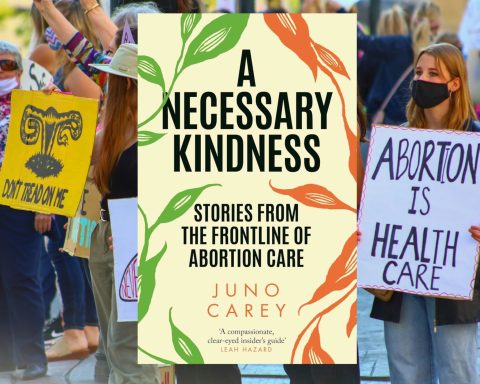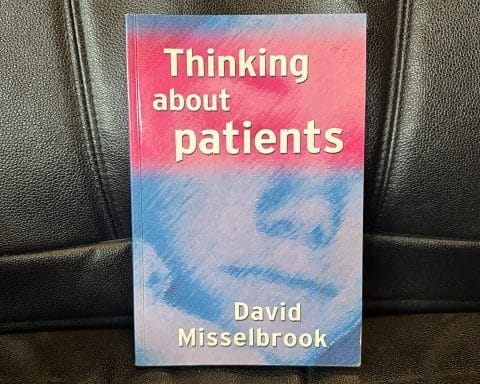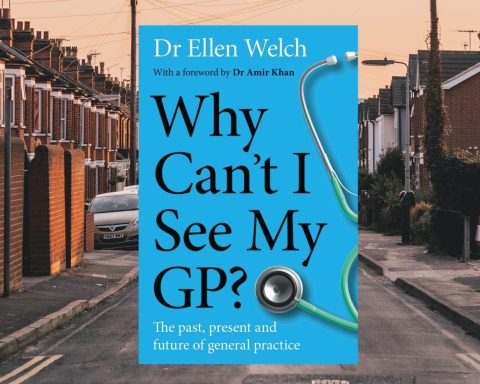
MI am seeing more and more women in general practice seeking help with their menopause symptoms, sometimes in crisis and other times for simple reassurance. This represents the changing rhetoric around menopause as it becomes less stigmatised, and the taboo is broken by celebrities raising the topic on social media. Women are no longer expected to suffer in silence and are more ready to discuss options with their chosen healthcare professionals.
One of the challenges for me is keeping up to date with current or, more to say, recommended practice, trends in prescribing change and availability of HRT which is patchy at best. Although I have listened to patients’ experiences of menopause, I have no lived experience. I feel lacking in a deep understanding of the impact on a person and their quality of life. The two books reviewed here contrast immensely with each other but, in combination, offer a rounded and comprehensive understanding of menopause.
Mariella Frostrup offers her own experiences of menopause to open up the conversation about subjects such as libido and relationships.
‘Cracking the menopause’ by Mariella Frostrup and Alice Smellie offers a fascinating insight into how menopause feels and impacts women. It provides snippets of advice from a diverse range of women who have experienced the vast plethora of physical and mental changes associated with menopause. One voice which particularly stayed in my mind was that of an ex-chief constable as she described menopause in a ‘men’s room’. She battled policy change to improve conditions for other women in the forces who previously dealt silently with symptoms.
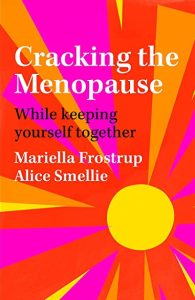
The book presents scientific evidence about different options for management which are in an easily digestible and understandable manner.
A section from ‘Cracking the menopause’ that interested me was about inequalities in menopause care and access, exploring views and access barriers for women from ethnic minority groups as well as describing significantly lower rates of HRT prescribing in more deprived communities. It includes a discussion by GPs from ethnic minority communities which helps give voice to those often excluded from the menopause conversation. Being seen and heard is crucial to reduce the institutional and systemic racism which can exist in our health system.
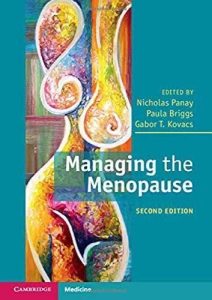
The chapters are divided into easy to navigate chapters; for example, one that caught my eye was androgen therapy in menopause which seems to be a hot topic at present. A chapter on nutrition and weight gain offers a more patient-directed insight into exercise and diet. I was particularly pleased to read the extensive chapter about libido and sexual function, which can be neglected in medical textbooks but are so crucial for women and their relationship with themself and others. This is an excellent textbook for menopause care, but like other medical texts, it lacks a direct patient perspective or voice.
In clinical practice, menopause care can be complex and unclear, even with a well-presented evidence base.
In clinical practice, menopause care can be complex and unclear, even with a well-presented evidence base. It involves a balance of managing a women’s symptoms and how they impact her quality of life versus the risk identified in evidence.
‘Managing menopause’ helps to clarify this with scenarios for clinical practice in primary care helping negotiate the complexity of multimorbidity and patient risk.
Menopause medicine is where science meets art; how you use the evidence base to allow the best care for women comes from understanding their journey. Both books are equally helpful in improving knowledge and understanding of menopause. They are entirely different in style and how you would use them. The book ‘Managing the menopause’ has won top draw status in my consultation room for easy access to challenging cases. Contrastingly, ‘Cracking the menopause’ has been on my bedside table at home and makes for a page-turning read; I already have women keen to borrow!
Featured books
- Frostrup M, Smellie A. Cracking the Menopause: While Keeping Yourself Together. London: Bluebird, 2022.
- Panay N, Briggs P, Kovacs GT. Managing The Menopause. Cambridge University Press, 2020.
Featured image: Weathered statue, taken by Andrew Papanikitas, 2022





